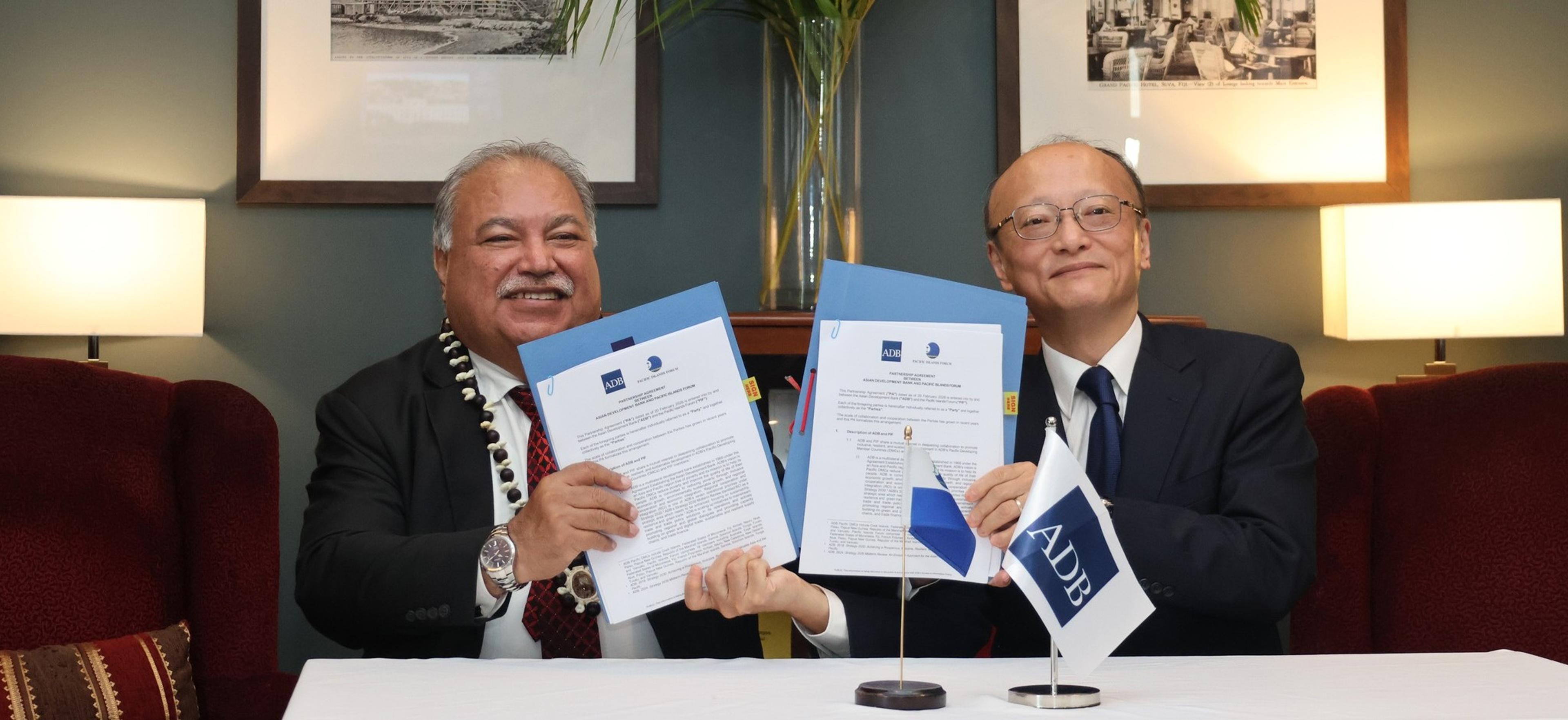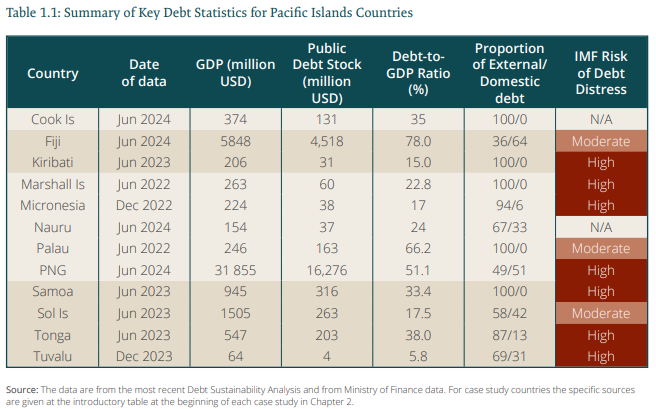

Children playing at a school in Samoa where 7 percent of people live in low lying coastal areas vulnerable to rising sea levels.
Photo/Caritas Australia
Drowning in debt: Church demands relief for Pacific nations
The Catholic Church’s international aid agency is calling for climate debt to be wiped, as some Pacific nations struggle to pay for basic social costs due to crippling debt repayments.


Time for an Indigenous State of Origin? The All Stars game shows who really powers the NRL



Asian Development Bank expands Pacific footprint with Suva hub and new PIF agreement

Time for an Indigenous State of Origin? The All Stars game shows who really powers the NRL


Many Pacific countries are getting deeper in the red to cover disaster recovery and mitigation costs, prompting calls for debt forgiveness and a structured format for climate finance.
A report from Caritas Oceania and Australia groups, including the Jubilee Australia Research Centre, criticised wealthier nations for offering debt rather than grants for cash-strapped Pacific nations.
Caritas Aotearoa New Zealand spokesperson Tony Sutorius says worsening cyclones and flooding have created severe financial burdens.
“Climate damage leads to debt and that has the potential to turn into a huge debt spiral that could be really damaging to the integrity and sovereignty of emerging nations.
“In the past, we would think of development aid perhaps in terms of grey aeroplanes arriving and sacks of things being taken out and given to people, but increasingly nowadays you're more likely to get an aeroplane full of bankers who are offering loans rather than actually giving grants.”

The report listed Fiji, Vanuatu, Tonga, Sāmoa, and Papua New Guinea as high-risk nations. Speaking to William Terite on Pacific Mornings, Sutorius said every country was unique, but the debt burden impacted basic services.
“To use Fiji as an example, it has got to the stage now where the debt is approaching 90 per cent of GDP, which is a very high amount.
“What that means in practice is that around 15 per cent of the total government spending every year is just paying the interest on the debt, and that's recognized internationally as a real danger threshold.”
Sutorius warned that some Pacific nations may seek quick fixes to debt at the cost of long-term sustainability.
“One of the risks that Pacific countries face is that they are tempted by this cash crunch of having to pay these big loans into unsustainable mining, for example, or extractive industries where they see a kind of a golden hope of being able to dig their way out, literally.”
Soane Mafi Bishop, president of Caritas Oceania and Cardinal of Tonga and Niue, said the connections between debt and climate disasters must be considered in countries vulnerable to climate change.
“Governments are paying more in interest and other debt servicing obligations than they are on health, education, or climate adaptation.
“Action must be taken to forgive debt and prevent it in the future.”
The myth of climate finance flux
The report, Weathering the Storm, was released to coincide with the United Nations annual climate conference, COP29, held in Azerbaijan.
It estimated climate finance needs for the Pacific region at NZ$2.5 billion per year, a shortfall of $1.7b from current funding.
Sutorius said they had seen a disturbing trend in climate grants, from rich countries to developing countries, increasingly turning into climate loans.
“There's a place for climate loans because countries sometimes need to invest in things that will create some return and allow them to repay the loans. But fundamentally, if a cyclone sweeps in and damages the country, you have to fix it.
“One change that's happened in the last decade or so is that most debt used to be owed to other countries, and so there was kind of always the possibility of a bit of friendly concessions being made. Nowadays, the majority of the debt's actually to the private sector.”
New Zealand must promote Pacific voice
Between 2008 and 2021, New Zealand donated $5.5b to the Pacific, making it the third-largest donor behind Australia and Japan.
Sutorius said this put New Zealand in a strong position of influence on the topic.
“We are a country where all of our international giving related to climate is still in the form of grants rather than loans. So I think we have a sort of moral authority on the world stage to talk about that.”
In 2026, Australia hopes to co-host COP31 alongside other Pacific nations.
Sutorius said it was an opportunity for Pacific voices to lead the world.
“Because where the Pacific is now is where the whole world is going to be, so actually the people of the Pacific are sort of the navigators, at the beginning at the front of the vaka.
“They're in a position to really help humanity steer a way through all of this. They need to be heard, though, and they need to be valued.”
The report has three clear recommendations:
- An immediate increase of climate finance – in addition to official aid - to the Pacific to ensure that mitigation, adaptation, loss, and damage are adequately funded.
- Finance is delivered through grants, not loans, via a UN vehicle rather than banks.
- A response to the sovereign debt crises, allowing for the cancellation or restructuring of unsustainable and illegitimate debts, alongside better assessments, more transparency, and greater protections for vulnerable countries.